Set on a hilly terrain and nestled between the Balsam Mountain Range and the El Boquerón volcano, the city of San Salvador welcomed some 650 youth from Belize, Cuba, El Salvador, Guatemala, Honduras, and Nicaragua who, answering the invitation of the Universal House of Justice, gathered to discuss their role in the development of their communities.
In the months leading up to the conference, great effort was exerted to meet and invite youth interested in contributing to the well-being of their communities. Some raised funds by making baked goods to sell; the adults, hearts captured by such sincere efforts, contributed more than was needed, creating a surplus towards the community-building activities that had inspired the youth to attend in the first place. This support continued as participants made their way to the conference. One father travelled hours by motorcycle to sign papers authorizing his daughter to exit the country.
“I used to not feel useful, and I didn’t understand my purpose. But after gaining insight into the true significance of life through the study of the first book in the institute process, I realised that I had a purpose, and I started my children’s classes. I may not be perfect, but I am learning.”
A participant at the conference
On the first morning, participants were seated in the hall ready for the programme an hour before it was to start. Youth from each country were welcomed with open arms, greeting each other with applause and cheers during the opening session. Counsellor Ana Hilda Zepeda de Lemus, one of two representatives of the Universal House of Justice, reminded the participants that many are looking to transform society, and that each person is faced with a crucial decision: how will I contribute to this transformation?
An intensive study of the materials then began that would last the three days of the conference. Although August is at the tail end of the rainy season, where there is always a threat of thunderstorms, the weather cooperated, and participants were able to convene outside under the shade of the many trees surrounding the venue. One youth reflecting on the experience of making individual and collective contributions to the transformation of their communities shared: “Where I am from, we read about Bahá’u’lláh’s vision of a spiritually and materially prosperous world, we reflect on what it could look like, and then we act on our understanding.”
The youth were filled with joy in realizing that many of them were already contributing to transforming their communities by nurturing those younger than themselves. One participant shared how “we were helped with the doubts we had about our lives; now, I have the opportunity to do the same for the younger generation.” Another reminisced about how being exposed at the age of 12 to the stories in the books studied in a programme for younger youth “created in me a desire to be like those [characters], who suffered but decided to carry on.” “Everyone has something to contribute,” pondered another participant. “You just need to find it. I want to help young people to stop feeling lost and decide what they can do to serve.”
The youth keenly felt their responsibility towards younger peers. One participant commented: “We are the mirrors the junior youth look into, looking for examples of how to act; we have to channel our energies properly so that they will do the same, or better.” Participants seemed unanimous on this point: more youth should be invited to learn how to nurture the spiritual qualities of the younger generation. “We want more youth to join us because together, we can contribute to the well-being of our communities!” exclaimed one participant.
MORE HIGHLIGHTS:
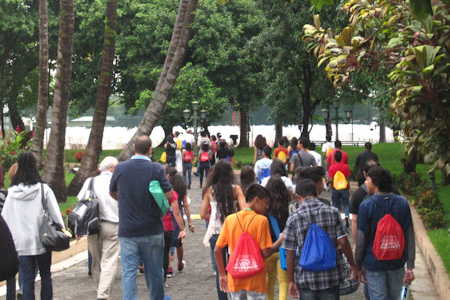
Youth from seven countries begin arriving at the conference site
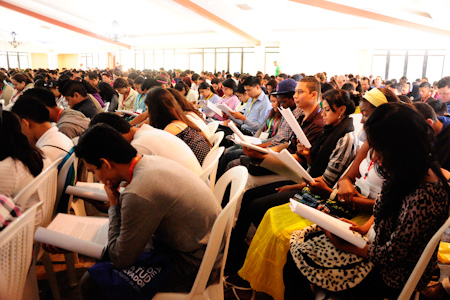
The conference brought together 650 youth from Belize, Cuba, El Salvador, Guatemala, Honduras, and Nicaragua
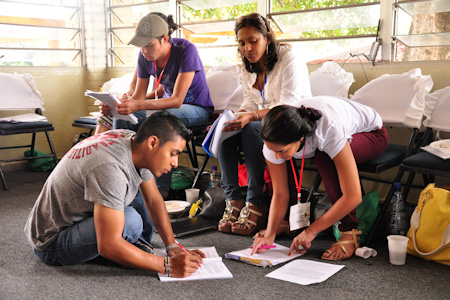
The youth were given ample time to study, consult, and plan together
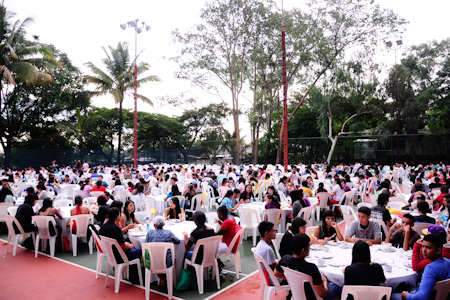
Conversations continued throughout lunch and dinner times
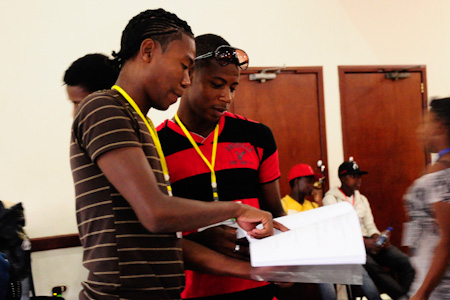
Two youth share some thoughts about the conference materials
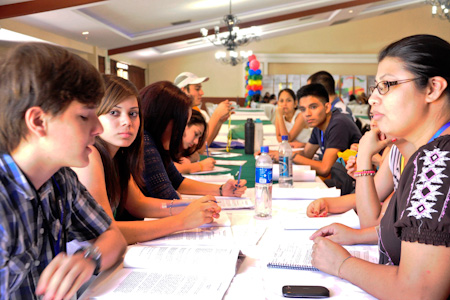
The conference encouraged consultations among participants in small workshop settings
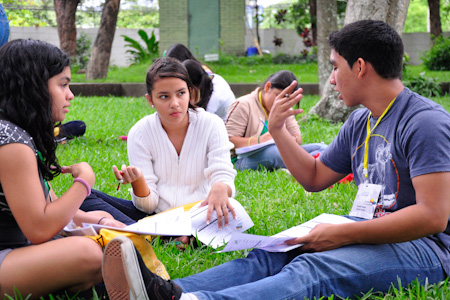
Some of the consultations took place on the lawns surrounding the venue
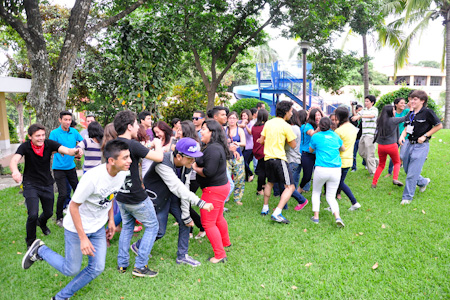
The youth also participated in games between sessions
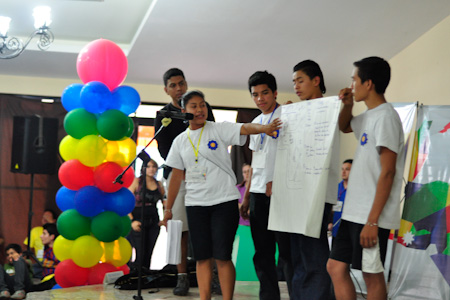
Participants were invited to share their plans in the plenary sessions
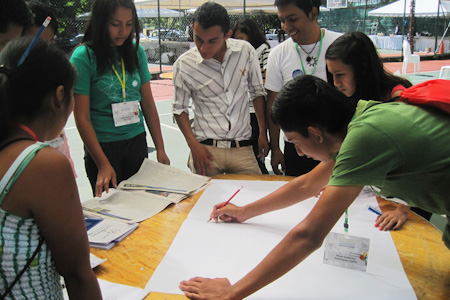
Through various activities, the participants articulated the concepts explored in the materials
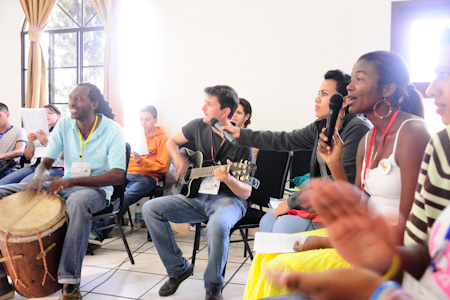
Music enhanced the study of the materials
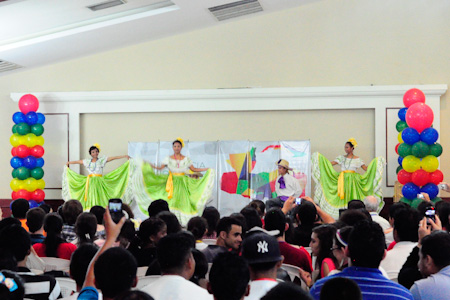
The opportunity was also provided for the participants to share artistic presentations from the many cultures represented
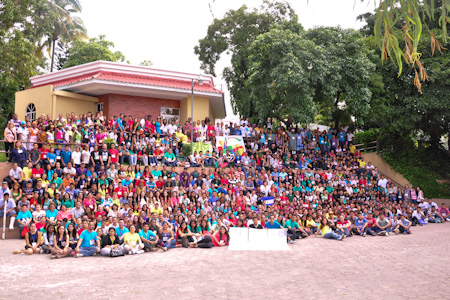
A group photo of the conference attendees